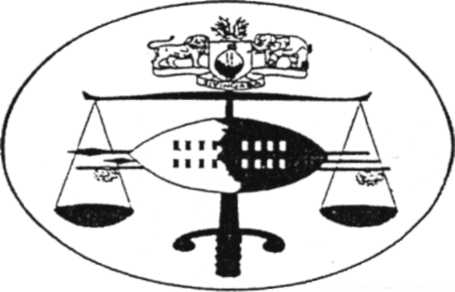

1
IN THE COURT OF APPEAL OF SWAZILAND
HELD AT MBABANE THE KING Coram Criminal Appeal No. 3/2004 Appellant Respondent BROWDE, JA TEBBUTT, JA STEYN, JA
In the matter between
BONGANI LAWRENCE ZWANE
and
JUDGMENT BROWDE, JA The appellant was charged in the High Court with murder it being alleged in the indictment that on or about the 4th November 2000 and at or near Mpolonjeni area, the accused unlawfully and intentionally killed Bonisile Magcobela by stabbing him with a sharp instrument.
The appellant pleaded guilty to culpable homicide which plea was accepted by the Crown. He was therefore found guilty and sentenced to imprisonment for 7 years. This appeal is directed only at the sentence, it being contended by the appellant that in arriving at the sentence he imposed the learned Judge misdirected himself in certain material respects. The first misdirection appears clearly from the record, namely ■ that the learned judge pronounced the sentence of 7 years imprisonment before giving the appellant an opportunity to lead evidence in mitigation of sentence. When this was brought to his attention he immediately conceded having erred and called upon the defence to place the mitigatory evidence before him. This was done and despite what I consider to be material evidence in mitigation of sentence the learned judge disregarded it and confirmed the sentence of 7 years imprisonment. The evidence thus disregarded was the following:- The appellant is a first offender who, after committing the act of inflicting fatal injuries with a sharp instrument, showed immediate and obviously sincere remorse. Immediately upon realisation that he had injured the deceased he attempted to obtain a vehicle to convey the deceased to hospital. These efforts were abortive and the deceased died. Thereafter the appellant and his family paid for the funeral expenses of the deceased. As soon as the appellant failed in his attempt to save the life of the
deceased by taking him to the hospital, the appellant went to the police, made a statement to the Magistrate of Mbabane and cooperated fully with the police. He is a young man of 23 years of age who was, at the time of the offence, self-employed as a welder. The act which led to the deceased's death, was said by his counsel - and this was not challenged by the Crown - to be unpremeditated on the spur of the moment and one which "he will regret for the duration of his life." This prompted Nkambule J to say "That is not mitigation, that is a defence." That observation is, of course, incorrect in a culpable homicide case. It should have been regarded as mitigatory, and failure to do so was a misdirection by the learned judge. In my view this evidence all adds up to substantial mitigation which, as I have pointed out appears to have made no impression on the learned judge. Instead of taking it into account the he expressed the view that the crown should not have accepted the plea and should have "gone on with murder." Prior to hearing the evidence in mitigation the judge a quo appeared to take into account certain alleged circumstances which had no foundation on the facts before the court. I refer to the observation of the learned judge that he had heard a report on the television in which the police
"lamented" the use of alcohol and it being the cause of the loss "of a lot of souls". He then stated that it was as a result of alcohol that the appellant took the life of the deceased, and went on to say "now we are going to make you an example so that people will desist from overdrinking and then committing horrendous crimes like this one." In my view this approach to the evidence in mitigation led to a sentence which, in the circumstances, requires to be reduced in the interest of justice and fairness to the appellant. In his heads of argument before us counsel drew attention to the Court a quo's failure to address the issue of back-dating the appellant's sentence to the date of his arrest. This has become a matter of practice which, since the learned Judge made no mention of it, one must assume was overlooked. Had he thought it should not apply in this case the learned Judge would no doubt have said so. It should therefore be applied by us. We have been informed that the appellant was in custody awaiting trial from 4 November 2000 to 2 May 2003. That is a period of almost exactly 2 '/3 years. He was sentenced on 18 February 2004 so it should have been backdated 2 "2 years that is to 18 September 2001.
For the above reasons, and not in any way wishing to detract from the seriousness of the offence, I would uphold the appeal against the sentence as follows:- The sentence of 7 years imprisonment is confirmed but 3 years thereof is suspended for 3 years on condition that the appellant is not convicted of an offence involving violence for which he is sentenced to imprisonment without the option of a fine and which is committed during the period of suspension. The sentence is backdated to 18th September 2001. DELIVERED IN OPEN COURT TfflS/.X»AY OF NOVEMBER, 2004 I BROWDE, JA 1AGREE ^Jl^^Z^j^ P.H. TEBBUTT, JA I AGREE J.H.< StEYN, JA
![]()